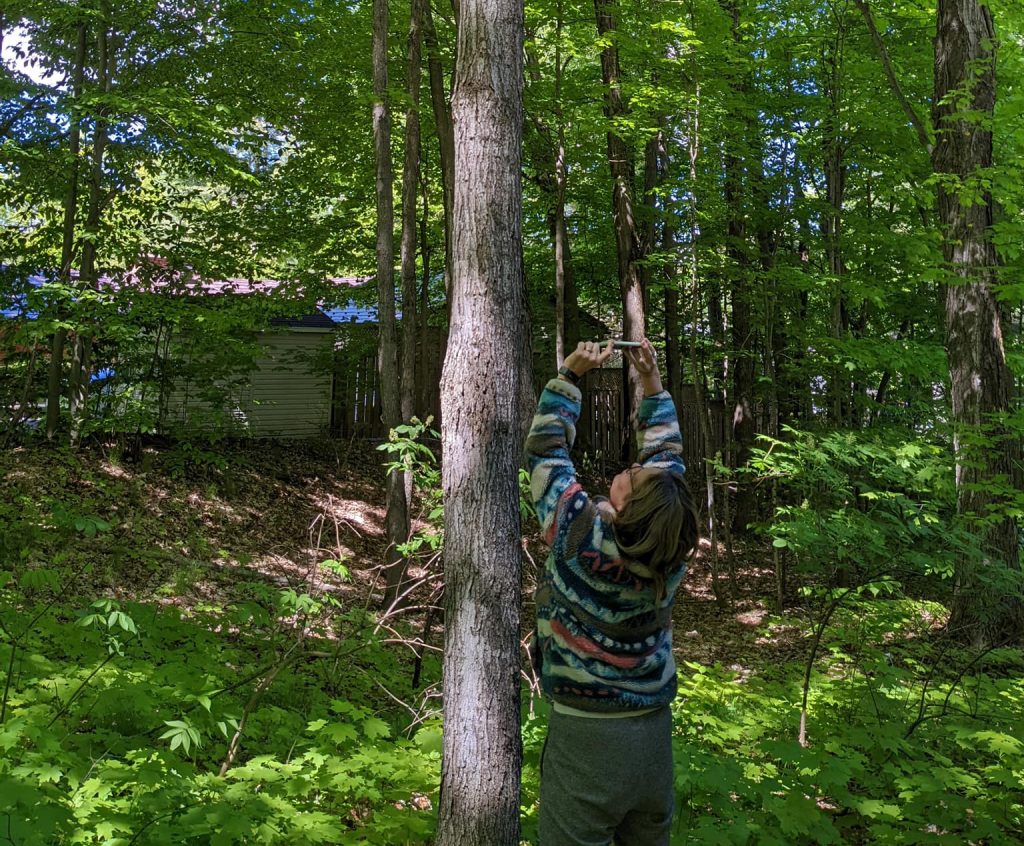Friends of the Muskoka Watershed Citizen Scientists have submitted their first round of data as a part of a program looking at the impacts of residential wood ash on trees and forests.
Over 50 local Citizen Scientists have swatted through the blackflies and mosquitoes to participate in the first round of a globally unique study that assesses how wood ash contributes to the health of our natural environment.
“This first set of data provides us with the background information we need to see how the wood ash impacts trees, which are struggling after decades of nutrient-depleting acid rain.” says Friends of Muskoka Watershed Citizen Science Coordinator Katie Paroschy. She adds that “18 different trees species are in the study, with sugar maple being the most common.”
Along with tree height, diameter and percent canopy cover measurements, soil samples were collected and sent to Trent University for assessment. Results show that the soil pH collected from beneath 58 trees averaged 4.57, which is an acidity level close to that of red wine. The addition of ash is expected to make the soil less acidic.
“We would like to give a big thank you to all the Friends of the Muskoka Watershed Citizen Scientists,” Paroschy says, “This program has been a great success to date.”
The second round of data collection is underway so Paroschy will soon have more information to share. The idea is to see how the ash has impacted the soil chemistry, and to see if there is a difference in the foliage chemistry between the tree that received wood ash and the tree which did not. Changes in health and growth between the trees, as well as over time will also be used to assess the impact of the calcium-rich wood ash.
Citizen science is the practice of public participation and collaboration in scientific research to increase scientific knowledge. “This program stands out from other Citizen Science programs because the participants are going beyond monitoring the natural environment and are actively conducting research. The feedback from the Citizen Scientists has been very positive” says Paroschy “This is a great project for all ages, a way to help further the study of the AshMuskoka project, and contribute to the health of our trees, forests and entire watershed.”
